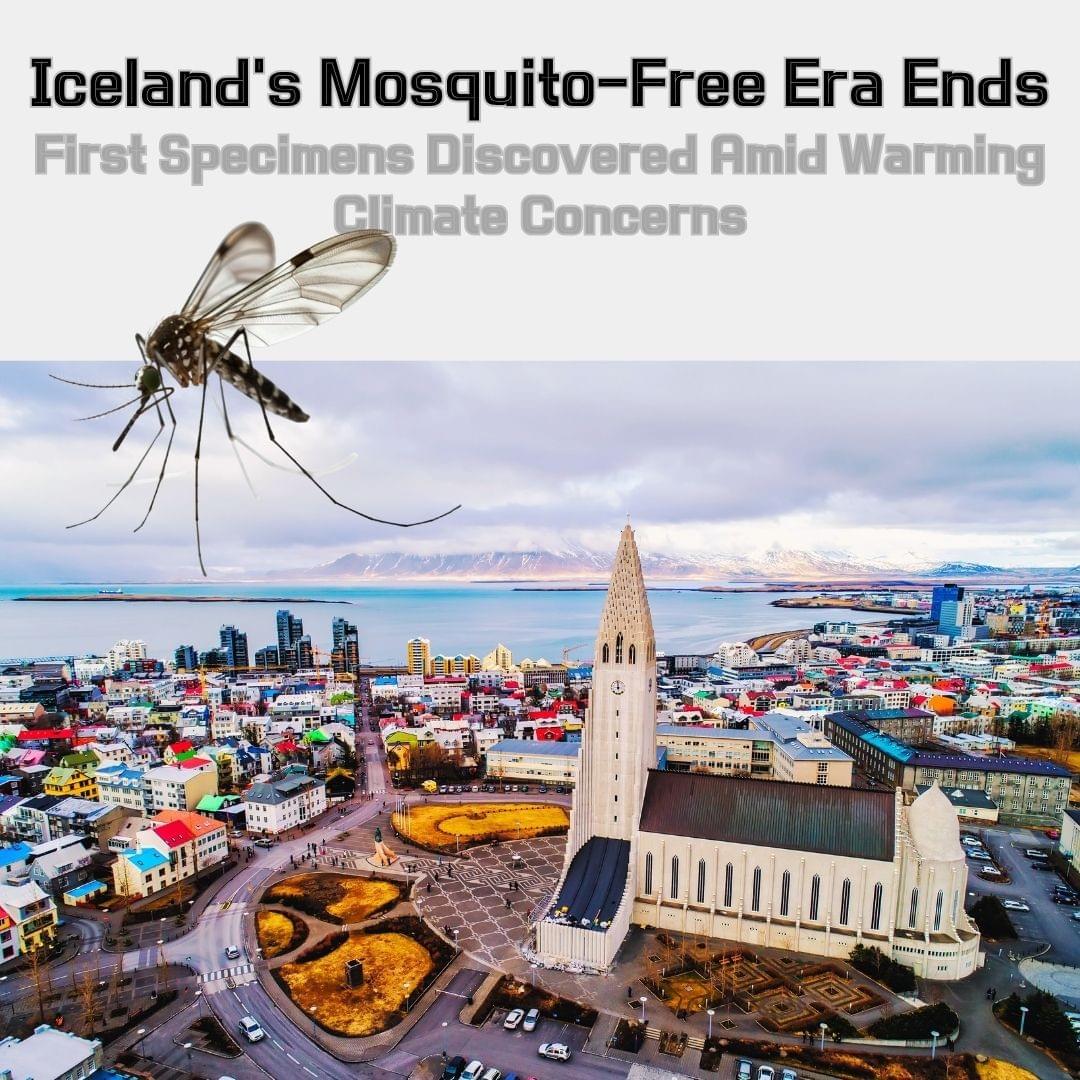Iceland's Mosquito-Free Era Ends
Iceland's Mosquito-Free Era Ends
First Specimens Discovered Amid Warming Climate Concerns

Iceland, long celebrated as one of the world's last mosquito-free havens alongside Antarctica, has officially bid farewell to its pristine, bite-less status. On Thursday, October 16, a citizen scientist made a startling discovery that has sent ripples through the scientific community: three mosquitoes trapped in a rural backyard, marking the first confirmed wild sighting of the insects on Icelandic soil.
Björn Hjaltason, an avid insect enthusiast, spotted the first "strange fly" at dusk while checking a red wine ribbon trap he uses to lure moths. The encounter unfolded in Kiðafell, a quiet valley in the Kjós region, approximately 30 kilometers north of the capital, Reykjavik. Over the following days, Hjaltason captured two more specimens and promptly shared his find on the Facebook group "Insects in Iceland." "I immediately suspected what was going on," he recounted, describing the initial sighting that unfolded like a scene from a nature documentary gone awry.
The insects were swiftly handed over to the Icelandic Institute of Natural History for analysis. Entomologist Matthías Alfreðsson confirmed the trio as Culiseta annulata—two females and one male—of the ringed or banded mosquito species. Native to the Palearctic region spanning Europe, northern Africa, and Asia, this cold-tolerant breed is no stranger to Nordic climes, where it often hunkers down in outbuildings or basements during harsh winters. "This is the first record of mosquitoes occurring in the natural environment in Iceland," Alfreðsson told CNN, noting that a lone specimen of a different species had been spotted years ago on an arriving aircraft at Keflavík International Airport—but never outdoors.
Alfreðsson estimates the mosquitoes likely hitched a ride via recent shipping containers or freight vessels, arriving just weeks or months ago. While it's unclear if they've begun breeding—female mosquitoes require stagnant water to lay eggs—the expert urges caution. "We need to wait until next spring to monitor for further spread," he said, emphasizing ongoing surveillance efforts. Iceland's extensive insect monitoring network, bolstered by citizen reports like Hjaltason's, gives scientists hope for early detection if a population takes root.
Notably, C. annulata thrives in chilly conditions, suggesting the incursion may not be a direct byproduct of climate change. However, the timing couldn't be more poignant: Iceland is warming at four times the global average, with collapsing glaciers, northward-migrating fish like mackerel, and longer summers creating fertile ground for invasive species. "Warming temperatures are likely to enhance the potential for other mosquito species to establish in Iceland, if they arrive," Alfreðsson warned, hinting at a broader ecological shift.
For generations, Icelanders have touted their island's mosquito absence as a quirky national perk—boasting of "no bites, just vibes" in tourism campaigns. The discovery shatters that myth, leaving Antarctica as the planet's sole holdout. Globally, mosquitoes transmit devastating diseases like malaria, dengue, and chikungunya, claiming over a million lives annually, per the American Mosquito Control Association. While C. annulata isn't a major vector, its foothold could pave the way for more dangerous cousins.
Experts like Dutch mosquito researcher Bart Knols view this as a harbinger of globalization's double-edged sword. "We should not be surprised that we see mosquitoes popping up in very strange localities," he told The New York Times, pointing to similar invasions in Alaska, Canada, and northern Scandinavia. Iceland's proactive steps—such as its pioneering carbon capture facilities—underscore the urgency of combating the very climate shifts enabling such surprises.
As winter looms, Iceland braces for what spring might bring. Will this be a one-off curiosity, or the prelude to itchy picnics and midnight swats? Scientists are watching closely, traps at the ready. For now, locals might want to stock up on repellent—just in case.